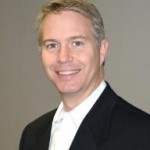
DT: This is Dennis Troyanos reporting for the Game Changers. Today I’m joined by Frank Harvey, the CMO of Liberty Medical. Frank, welcome.
FH: Thanks very much, Dennis. Hope you’re doing well.
DT: Frank, tell us about Liberty Medical and give our audience a sense of what it takes to make Liberty Medical a unique brand.
FH: Well I think what really helps Liberty Medical be a unique brand is the people that we have here and the care that we feel for the patients that are Liberty patients. Liberty is a medical health solutions company and we focus on diabetic supplies for our patients, as well as colostomy catheters and several other related morbidities where we help our patients out.
DT: That’s a growing market I’d assume with the aging population.
FH: Absolutely. With the aging population, with the increasing incidence of obesity – where you see a very close correlation with diabetes as well – all of those items are pushing up the incidence of diabetes.
DT: The target audience for Liberty Medical is who?
FH: The target audience is anyone with diabetes type 1 or type 2. The majority of our patients are on Medicare – 65 and older – but we’ve got a growing part of our population that is age 45-65 as well. We also have a number of patients that are insulin pump patients that may have become Type 1 diabetics earlier in life as well that we serve.
DT: How does Liberty Medical create a relationship with these patients?
FH: Service is the thing that separates us from our competitors and the thing that makes a difference for our patients. Diabetes is hard; it’s very difficult when somebody becomes diagnosed with diabetes. It changes their outlook on life. It changes how they have to live their life: from an exercise standpoint, from a diet standpoint. What they eat, what they do, how energetic they feel throughout the day. Our folks are experts at helping educate our patients on diabetes and how to live a healthy life with diabetes. Also, we understand the psychological impact that diabetes can bring to a person’s life. We work hand-in-hand with them, whether it’s our phone representatives or our certified diabetes educators or our pharmacists that are on the phone with patients.
DT: I’ve got to believe that that’s an incredible service because when someone has diabetes and they go in to their endocrinologist, those doctors are typically very pressed for time and don’t have a lot of time to go through all the intimate conversations that a diabetic might have. This seems like an interesting outlet for a person who has that disease.
FH: You’re exactly right, Dennis. Physicians are a very caring group and they do as much as they can with their available time to help give the patients this instruction. We really feel like we’re a critical member of the healthcare team as well. Liberty Medical steps in there and is able to provide in-depth education to our patients. We work hand in hand with our patients as they go from learning they have diabetes to living with diabetes and helping them live a healthier life with diabetes. We do perform quite a function and it’s very rewarding for us and our folks as well. We hear every day from over a million patients how much help we are to them. There are times when we may be the only person they talk to in a week or two weeks on the phone. We’re their outlet, a lot of times, to the outside world.
DT: I don’t know if our audience know s this but you’re new to Liberty Medical. How long have you been there at this point?
FH: Six months now.
DT: What attracted you to this particular assignment?
FH: Originally I was a pharmacist before I went into the pharmaceutical industry. Then I went to – about 11 years ago now – the direct marketing industry with Harte-Hanks. I’ve always been interested in diabetes; my father was a diabetic patient. I saw the struggles that he had with maintaining his own diet and a healthy lifestyle. It was always an area of interest to me. When I met the folks that were the leaders of Liberty it convinced me to come to the company, particularly because our parent, MedCo Health Solutions, is such a wonderful company and at the forefront of healthcare in this country.
DT: You raise a question about the culture at Liberty. Can you describe the culture of the organization for us?
FH: I’m so pleased: we do an employee survey every year and I’ve never seen anywhere that the employee survey has come back so positive. People really feel good about what they do to help our patients here. We have a very service-oriented culture here; the folks that we hire, one of the things that we look for in those folks is whether they’re caring and giving. Are they people that are very considerate about their fellow man? That’s really what it takes to be successful at Liberty: you have got to enjoy helping people. Two things we focus on: we want to help more people, and we want to help more people more.
DT: That’s a pretty good prescription for any kind of company, isn’t it?
FH: Absolutely. If we’re successful helping more people, and helping more people more, the financials will take care of themselves.
DT: You bet. So how are the products distributed?
FH: We have our own shipping. We do the fulfillment. Maybe the question is how do patients find us and locate us and how do we market to them?
DT: It would be great to give us an overview of all three.
FH: Fulfillment takes place out of our own warehouses; we ship to patients after we talk to them. The majority of the patients find us through one of our means of advertising, and we really do multi-channel marketing efforts: direct response, TV, print, mail, internet marketing, and collaterals within our own boxes that get sent out as well. We really do use all channels. Then we have a sales force that calls on the physicians’ offices to make them aware of Liberty and what we can offer their patents from an education standpoint.
DT: I know that you’re an expert in integrated marketing, and a lot of people talk about integrated marketing. What I’d like to get for our audience is a view into the Frank Harvey methodology of having all of the various channels of communication working together. How would you characterize leveraging these different components – direct mail, telemarketing, direct response television and others you may have mentioned – to work together?
FH: We really treat our marketing spend with a trading-floor mentality. We look at acquiring each additional patient that comes to Liberty; we look at what the expense is across each channel. Wherever the least-expensive next life is where we’ll focus our marketing dollars. We do that by looking on a weekly basis at where our spend levels are, what our costs of acquisition are across each of the channels, really creating a united brand across all of the channels. We’re speaking with the same language; we’re promoting the same benefits of Liberty across each of the channels. We’ll align our internet marketing and our TV spend; when we have a commercial running, for instance, we’ll go heavy online because there’s a huge rollover from TV to the internet at this point.
DT: If we know anything from history, we know that the more things change in marketing, the more things change in marketing, right? What’s your vision for the future of dealing with this change? Give us a window into where you’re going to be taking the marketing vision for the future for Liberty Medical.
FH: We see changes almost on a weekly basis and also seasonally as well. We know that there are certain times during the year where TV may work better, where print or direct mail works better. We’re in a constant state of evolving and trying to be on the cutting edge of marketing. We’re investing in social media at this point as well, not just search engine marketing; we have social media properties on Facebook and Twitter. We think we’ll continue to see a larger percentage of our audience go online. There’s a significant portion of our population that’s online now and as the Baby Boomers continue to age into the over-65 group we’ll see a larger and larger percentage of those individuals online. That’s where they go to seek their health information; that’s where we’re finding them, that’s where they’re locating us. We expect to continue to see movement to the internet, but we also understand and expect that the traditional channels will always remain viable and be an important part of the overall marketing mix.
DT: Liberty is a direct seller; 100% direct to the consumer, is that correct?
FH: We are direct to consumer, that’s correct. We do also have managed care representatives, so we do have some B-to-B, and our healthcare practice does call directly on physicians. We do marketing in what would be considered a B-to-B sense with the physicians and managed care plans, but the majority of our marketing efforts are on a direct to consumer basis.
DT: Healthcare is right in the center of the national discussion right now. Given the state of the healthcare industry, what are the challenges in this environment for organizations like yours who are in the healthcare sector?
FH: At the end of the day we believe that the folks on Capitol Hill will work together. Healthcare and healthcare reform is too important to our nation for individuals not to work together. We want to make sure that we’re there to continue to serve the customers and that we can continue to bring the view of the patient to those individuals on Capitol Hill as well. We are advocates for our patients, and we understand that we’ll continue to see more individuals requiring more healthcare as the average age of the US population continues to increase. We try to continue to be there for our patients.
DT: What’s the next big thing for Liberty Medical and for Frank Harvey?
FH: Our next big thing is the next patient we’re able to help, and I truly mean that. We get excited about helping our patients. Every day as I walk by the folks on the phones with the patients, hearing in their voice how much they enjoy helping people and hearing how much they appreciate being helped. We’ll do well by doing good; Wilford Brimley says that. We’ll continue to look for innovative ways to be there for our patients and be able to provide as much as we can to help them live a healthier life.
DT: If your average patient does as well as Wilford Brimley does with his diabetes that’s pretty encouraging, right?
FH: Absolutely.

